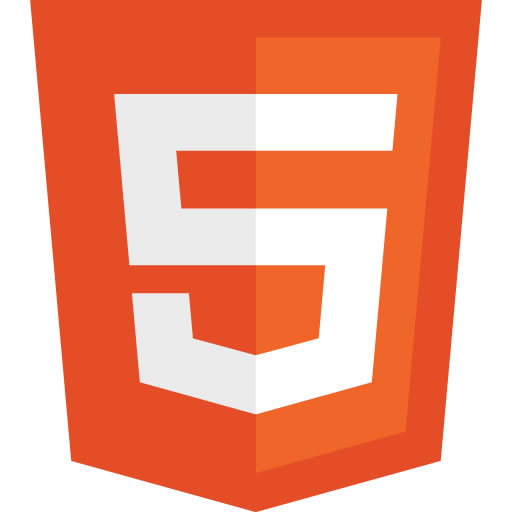
I’m new to the front-end, let me share the implementation process of the touch screen version of the carousel on the mobile phone. The general functions are as follows: supports cyclic sliding width, which can be set arbitrarily, and does not need to be the same width as the screen. The page can be scrolled vertically, and callbacks can be set to monitor the switching of elements. Pure js, without any third-party library principles. Assume that the width of the child element .item is 375px. Use absolute positioning to place all child elements within the parent element. Set the width of the parent element .carousel to 375px, which is the same width as the child element .item. Add touch events to the parent element .carousel: touchstart, touchmove, touchend. When the finger is pressed, the initial position (clientX) is saved. When the finger slides, the sliding direction is determined by the sliding distance: when the finger slides to the left, the current element and the current element are moved at the same time. If the finger of the element on the right slides to the right, the current element and the element on the left of the current element will be moved simultaneously. When the finger of the element on the left of the current element is lifted, it will be judged by the sliding distance whether to switch to the next page. The movement distance does not exceed 50% of the width of the child element, and the current page will be rolled back. Go to the initial position without switching the current element. If the movement distance exceeds 50% of the width of the child element, switch the current element to the next element
1. About the production method of carousel chart in H5

#Introduction: I am new to the front-end and would like to share the implementation process of the touch screen version of the carousel on the mobile phone. The general functions are as follows: It supports circular sliding width and can be arbitrary. Settings do not need to be as wide as the screen. The page can be scrolled vertically. Callbacks can be set to listen for element switching. Pure js, without any third-party library principles. Assume that the width of the child element.item is 375px. Use absolute positioning to place all child elements on the parent element. Set the width of the parent element .carousel to 375px, which is the same width as the child element .item. Add a touch event to the parent element .carousel: touchstart,...
2. An example tutorial for implementing a carousel (touch screen version) using H5

##Introduction: First time entering the front-end , share the implementation process of the touch screen version of the carousel on the mobile phone. The general functions are as follows: Supports cyclic sliding width, which can be set arbitrarily. It does not need to be the same width as the screen. The page can be scrolled vertically. Callbacks can be set to monitor the switching of elements. Pure js, without any help. The third-party library principle assumes that the width of the child element .item is 375px. Use absolute positioning to place all child elements within the parent element. Set the width of the parent element .carousel to 375px, which is the same width as the child element .item. Add the parent element .carousel Touch event: touchsta...
3. Details on how to use H5 to implement a touch-screen version of the carousel

Introduction: This article mainly introduces how to use H5 to implement a touch-screen version of the carousel. The editor thinks it is quite good, so I will share it with you now. Also as a reference for everyone. Let’s follow the editor to take a look.
4. Taobao touch screen version
Introduction: Taobao touch screen version Screen version
5. flexslider picture carousel, multi-picture album sliding (supports touch screen version)
Introduction: Provide various official and user-released code examples and code references. Everyone is welcome to communicate and learn.
6. Can HTML5 be used in a certain way? To what extent can it replace mobile APP?
Introduction: Preface: I am learning HTML5 by myself, and suddenly I have a few ideas. ①Function: Can HTML5 establish a complete web application system to replace the traditional application model? eg: [Touch screen versions] of various portals can already replace the simple client mode. ②Data: Can HTML5 create complete local data? Implement how the APP works?
7. Why are rem and px mixed in the touch screen version of Taobao? what is the benefit? Why not all use rem?
Introduction:
[Related Q&A recommendations]:
javascript - How does the touch screen version of Meituan hide the address bar of the browser?
html - When android saves the Taobao touch screen page to home, is it recognized as a web app?
javascript - How can I refresh the page after the touch screen version of the browser rolls back?
php - IP positioning, H5 positioning, how to solve the positioning problem? ? ?
javascript - How to implement the top, middle and bottom layout of Taobao touch screen homepage
The above is the detailed content of How to create a touch screen version of the page. For more information, please follow other related articles on the PHP Chinese website!
 What plugin is composer?
What plugin is composer?
 Can data between Hongmeng system and Android system be interoperable?
Can data between Hongmeng system and Android system be interoperable?
 How to open nrg file
How to open nrg file
 What does Matcha Exchange do?
What does Matcha Exchange do?
 How to use the datediff function
How to use the datediff function
 How to represent negative numbers in binary
How to represent negative numbers in binary
 oncontextmenu incident
oncontextmenu incident
 What keys do arrows refer to in computers?
What keys do arrows refer to in computers?
 WeChat Moments, two dashes and one dot
WeChat Moments, two dashes and one dot




